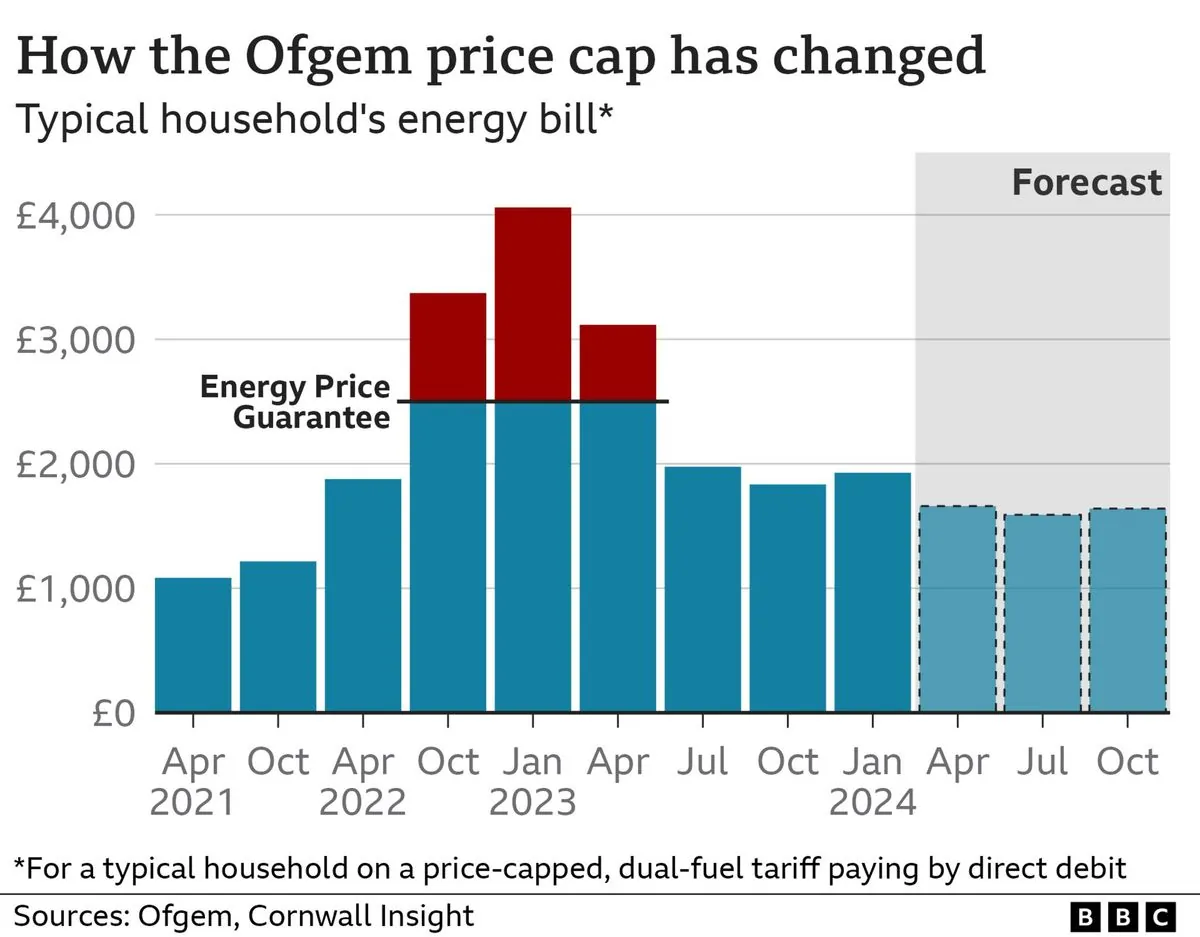UK Energy Prices Surge Despite Labour's Pre-Election Promises
Ofgem announces energy price cap increase, contradicting Labour's pledge to reduce bills. The decision, coupled with policy changes, could significantly impact households, especially pensioners.

In a surprising turn of events, Keir Starmer's Labour Party's pre-election promise to reduce energy costs has been overshadowed by recent developments in the UK energy sector. The Office of Gas and Electricity Markets (Ofgem), Britain's energy regulator, has announced an increase in the energy price cap, leading to an average rise of £149 per household.
This decision stands in stark contrast to Labour's earlier pledge to decrease energy bills by £300 annually through the establishment of an £8.3 billion state-owned clean electricity company. The situation is further exacerbated by Labour's plan to discontinue the universal Winter Fuel Payment, a tax-free annual sum designed to assist older UK residents with heating expenses.

For some pensioners, these changes could result in an effective increase of nearly £500 in their energy costs. This development highlights the complexities of the UK's approach to achieving net zero emissions, a goal the government aims to reach by 2050.
Critics argue that years of government intervention through targets, prohibitions, regulations, and taxes have left the UK vulnerable to global events and international market fluctuations. As a result, British consumers are facing higher energy prices compared to most developed nations.
The UK's energy security is a growing concern, particularly in light of Labour's proposed moratorium on new North Sea oil and gas licences. This policy, combined with plans to extend and increase windfall taxes on energy companies, could potentially compromise the country's energy independence. It's worth noting that the North Sea has been a crucial source of oil and gas for the UK since the 1970s.
"People should shop around."
Ofgem's suggestion for consumers to "shop around" indicates a lack of substantial effort to transform the energy sector into a truly competitive market. This advice comes despite the UK energy market being fully deregulated since 1999, allowing consumers to choose their suppliers.
The current situation presents a challenging dilemma for Keir Starmer and his party. Their earlier promises to "cut bills for good" and enhance energy independence are now at odds with their colleagues' efforts to position the UK as a clean energy superpower. This ambition is reflected in the country's significant investments in renewable energy sources, particularly offshore wind farms, where the UK has become a global leader.
As the UK continues its transition towards cleaner energy sources, including the planned phase-out of coal-fired power stations by 2024, difficult decisions lie ahead. Balancing the need for energy security, affordability, and environmental sustainability will be crucial in addressing the ongoing challenges in the UK's energy sector.


































